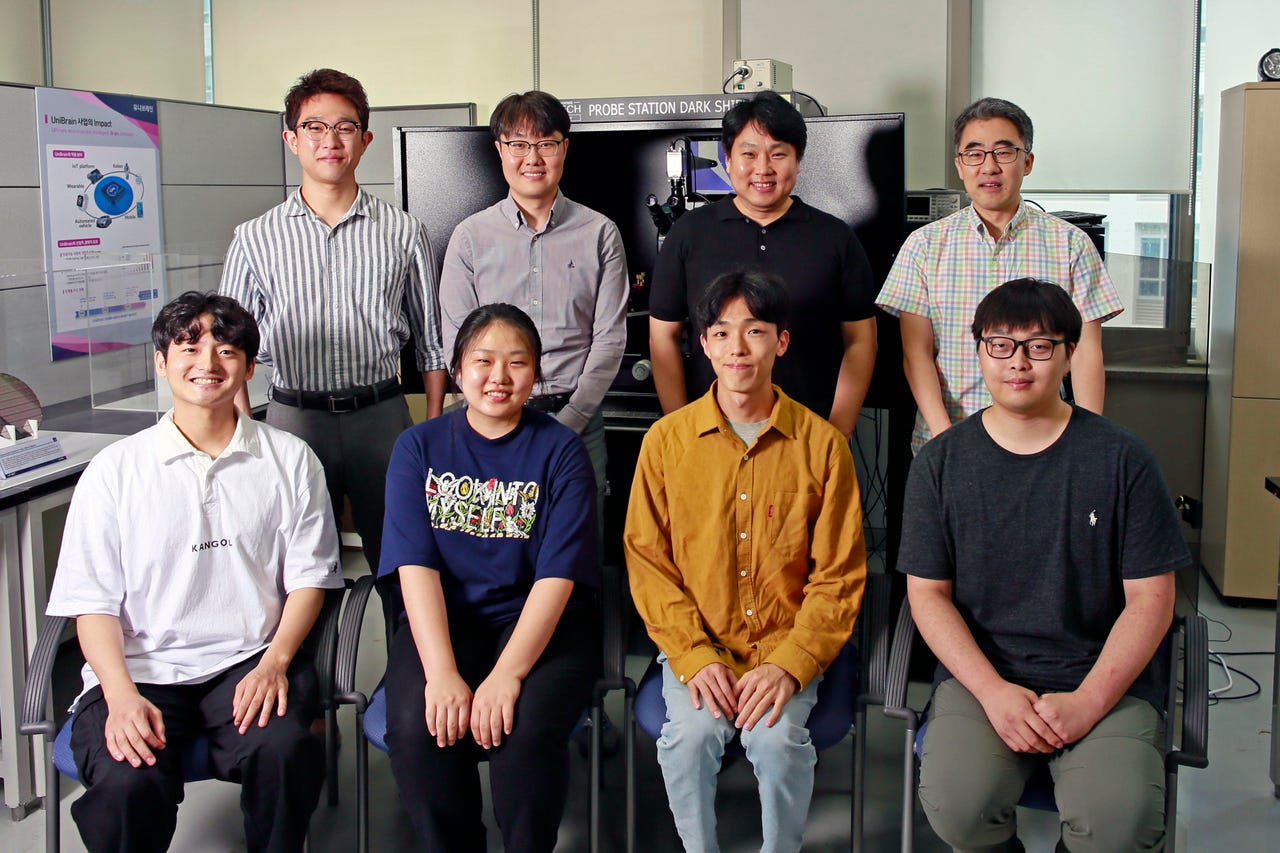Korean researchers develop ternary semiconductor tech


A South Korean research team has successfully realised an energy-efficient ternary metal-oxide semiconductor on a large-sized wafer.
Professor Kyung Rok Kim of UNIST's Electrical & Computer Engineering Department and his team successfully created a semiconductor that operates in a ternary logic system instead of the current binary. The results of the test were published in scientific journal Nature Electronics.
Using the ternary system of 0, 1, 2 lessens the amount of information semiconductors need to process and does it faster, resulting in less power consumption, the team said. It will also help in miniaturising chips further.
For example, to express the number 128 in the current binary system, 8 "bits" will be required. With the ternary system, only 5 "trits" will be required.
See also: Samsung begins mass production of its own 5G chips
Power leakage is a major obstacle in making semiconductors smaller. Packing more circuits in a smaller space exasperates the so-called tunneling effect that increases power leakage, which in turn requires devices to consume more electricity.
In their test, Kim's team deployed the ternary logic system dependent on the amount of power leakage to manage power output of devices.
Professor Kim said if the semiconductor technology is commercialised, it could be a paradigm shifter that positively affects industries such as artificial intelligence, autonomous vehicles, Internet of Things, biochips and robots, all where semiconductors play a crucial role.
Samsung Electronics has been backing Kim's research since September 2017 via its Samsung's Science & Technology Foundation, which offers grants for promising technology projects.
Samsung is currently verifying the technology at its foundry business-run fab.
Related Coverage
Samsung receives safety certificate for car semiconductors
Samsung has received the ISO 26262 Certification from TUV Rheinland for functional safety in its product development process for automotive semiconductors.
Samsung to prepare contingency plans for Korea-Japan trade scuffle
Samsung leader JY Lee has told the company's semiconductor and display businesses to make contingency plans in the event that the trade dispute between South Korea and Japan continues to drag on.
AI applications, chips, deep tech, and geopolitics in 2019: The stakes have never been higher
The state of AI in 2019 report analysis with report author, AI expert, and venture capitalist Nathan Benaich continues. High-profile applications, funding, and the politics of AI
Increasing storage densities require aggressive software management to maintain performance (TechRepublic)
Denser QLC NAND offers a limited number of write cycles compared to TLC and MLC NAND, while SMR drives offer increased densities for platter hard drives.